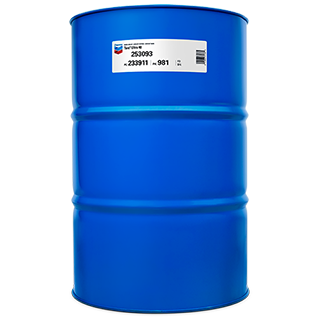 Taro® Ultra is new range of cylinder lubricants specifically designed to cope with the demands and required flexibility for
IMO 2020. Taro Ultra cylinder lubricants have been fully field tested using a wide variety of fuels expected to be available
post IMO 2020 implementation and are approved by major OEMs.
Taro Ultra 40 is a 40 Base Number (BN) cylinder lubricant designed for lubricating the latest generation two-stroke marine
engines running on low sulphur fuels under all loads and operating conditions. Taro Ultra 40 is blended with highly refined
base oils and carefully selected additives to provide excellent ring and liner wear protection and piston cleanliness in slowspeed
crosshead diesel engines.
Taro® Ultra is new range of cylinder lubricants specifically designed to cope with the demands and required flexibility for
IMO 2020. Taro Ultra cylinder lubricants have been fully field tested using a wide variety of fuels expected to be available
post IMO 2020 implementation and are approved by major OEMs.
Taro Ultra 40 is a 40 Base Number (BN) cylinder lubricant designed for lubricating the latest generation two-stroke marine
engines running on low sulphur fuels under all loads and operating conditions. Taro Ultra 40 is blended with highly refined
base oils and carefully selected additives to provide excellent ring and liner wear protection and piston cleanliness in slowspeed
crosshead diesel engines.
Taro Ultra 40 is recommended for lubricating the cylinders of large low-speed marine diesel engines using:
* Continuous operation on Very Low Sulphur Fuel (VLSFO) and Ultra Low Sulphur Fuel (ULSFO), under all loads and
operating conditions. Running on low sulphur fuel requires the reduction of BN introduced into the cylinder. This can be achieved by optimizing the oil federate. Taro Ultra 40 should be used in accordance with OEM guidelines and recommendations.
* ACOM (automated cylinder oil mixing) system that mixes Taro Ultra 40 and Taro Ultra 140 to the BN requested depending
on sulphur content of the bunkered fuel.
Everllence (formerly MAN ES) (Category I cylinder oils)
WinGD (formerly Wärtsilä)
Japan Engine Corporation (formerly Mitsubishi/Kobe Diesel)
ACOM (automated cylinder oil mixing) according to Everllence approval
1. Engine Protection
Protects against excessive cylinder liner and piston ring wear, thus allowing prolonged service intervals.
2. Engine Cleanliness
Prevents ring sticking and minimizes deposit formation on the pistons and throughout the combustion chamber exhaust areas.
3. Storage Stability
Stable at ambient temperatures and during long-term storage.
4. Compatibility
Miscible and compatible with diesel cylinder lubricants generally known to the international marine trade.
